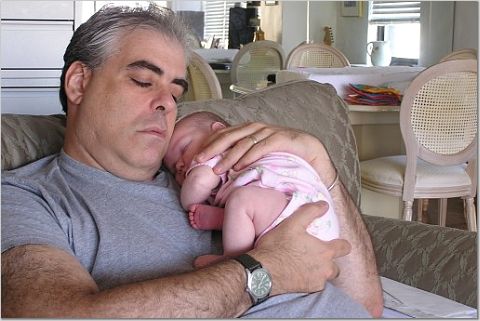Book Recommendation: Craig Unger, "House of Bush, House of Saud"
Wednesday, August 18, 2004
I've been reading Craig Unger's House of Bush, House of Saud: The Secret Relationship Between the World's Two Most Powerful Dynasties. I've linked to it in two other places-- including my opening post on F9/11. I'd lent the book out while reading it, and have now gotten it back and am finishing it.
I recommend this book quite highly. Especially for anyone who saw and liked Michael Moore's Fahrenheit 9/11 (and more so for those who, like me, hated it and thought it was pure tripe.) The book covers somewhat similar ground--indeed Unger is briefly interviewed in the film-- but comparing the two is like comparing footnotes to pratfalls. The one is a thoroughly researched, intelligent, and informative work; the other, a Michael Moore movie.
Obviously Unger has an agenda-- or at least a hypothesis, as spelled out in the book's title. Doesn't matter; everyone does. If you want to read 5 other books covering the same ground that are more sympathetic to Bush, by all means do so. Indeed
neo-con Stephen Schwartz's book The Two Faces of Islam: The House of Saud From Tradition to Terror is also herein recommended. Frankly I don't think Unger's anti-Bush at all; in fact, I think he's somewhat dispassionate, and the story he weaves about the Saudis infilitrating US foreign policy starts with the Carter administration and includes members of both parties (actually, the oil for security relationship with the Saudis dates to FDR). Of course, the Texas oil men the Saudis have courted for years do seem to be disproportionately represented in the administrations of both Bushes. But don't let me spoil the book for you.
Anyway, forget Bush bashing (which this book doesn't do, although it might engender anger in the reader toward the administration.) If you want a good accounting of the history of US/middle east relations from, say, the mid-70s to today, one that ties together the Iran hostage crisis and Iran Contra and the Iran/Iraq war and the fall of the USSR and the 1993 attempt at the World Trade Center, up through 9/11 and the present day, this is the book for you. Frankly I find that the Bush/Saudi relationship is a framework or backdrop for a broader history of the topic. And to put Unger's objectivity in stark contrast to Moore's over-the-top oafish agenda-foisting, try this: "But these Bush-Bin Laden 'relationships' were indirect-- two degrees of separation perhaps-- and at times have been overstated. Critics have asserted that money may have gone from Khalid bin Mahfouz and Salem bin Laden through James Bath into Arbusto Energy, the oil company started by George W. Bush, but no hard evidence has ever been found to back up that charge." (Unger, page 101). Whereas Moore uses cinematic innuendo to pretty much place Bush and Bin Laden at the same tea party.
If you read the first APW post, about Fahrenheit 9/11, you know I took Moore to task for making a whole movie about US and the middle east without once mentioning the word Wahhabi. Unger, of course, mentions the word for the first time on page 3. Here's the thing: for my money, it is FAR more important for Americans to understand who "the evil doers" are than to look for some oil-fueled (pun intended) Bush family conspiracy (although, believe me, the Bushes are far too cozy with the Saudis for our national security interests to be best served, and you don't need a book to tell you that). Words can obscure or inform; calling our enemies "terrorists" obscures, because we are characterizing a group of people by their military tactic. I mean, we called the Japanese the Japanese in WWII; not bomber plane fliers.
So a free tip: find Unger's book at Borders or Barnes & Noble, buy yourself a latte in the cafe, sit down and and read chapter 5, the Double Marriage. Then you can put the book back. This is the chapter that neatly and concisely explains the history and development of Wahhabism and the Saudis, and it is the quickest way I know of for the loyal APW reader to get up to speed on the people we are at war with (that would be the Wahhabis). I don't think either Bush is mentioned once in that chapter, so for you conservative libertarians out there, the water's fine. Go check it out, if only to be that much more informed about the world you live in. (Note: Schwartz's book is actually far more in-depth on the Wahhabis-- that's basically what its about-- and as I say, I recommend it. But the one Unger chapter is shorter than reading the whole Schwartz book, and we here at APW are always looking to save our loyal readers valuable time.)
Labels: The politics
Posted by: --josh-- @ 9:03 AM




I just Stumbled upon your blog im more then half way done wiht House of bush house of saud
i liekd what you said
and since ill probly never see your blog again cause i was just clicking that new "next blog feature" i thought i should be all big ups
that's all
keep on keeping on
First off, a belated thanks to the guy above.
Second off, I've finished the book now, and I have to revise something I said: Unger IS anti-Bush. I mean, boy, he makes a hell of a case for it. Because when it comes to the morass of terrorism, oil, Saudis, Wahhabis, national security, the middle east, and 9/11, there is a hell of a case case to be made. (One that, if all you know is what you saw in Mcihael Moore's movie, will prove quite enlightening.) I too am anti-Bush for all the same reasons. But to say he isn't anti-Bush after getting through the second half of the book would be disingenuous.
Post a Comment
<< Home